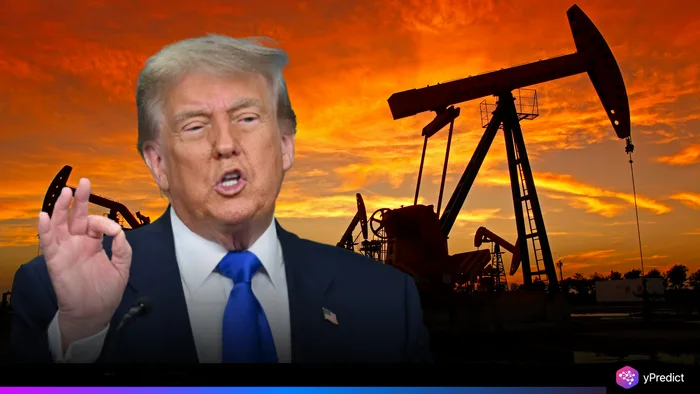
Oil executives across the United States have shrugged off Donald Trump’s renewed threat to impose tariffs on Russian crude. As the former president doubles down on an aggressive energy trade stance ahead of the 2026 elections, the American oil sector appears largely unmoved. Insiders argue that tariffs on Russian oil may achieve little beyond symbolic posturing, especially as current Russian crude imports remain limited and energy markets already face volatility.
Executives believe that energy decisions should prioritize market stability over political optics. According to several industry leaders, Trump’s proposal lacks clear economic benefit and risks triggering unnecessary price disruptions. The broader concern is that another politically motivated move could destabilize a recovering energy sector already adapting to global shifts post-Ukraine invasion and OPEC+ adjustments.
US Oil Executives Stand Firm Against Policy Pressure
Several top-level executives from major US energy firms have publicly dismissed Trump’s tariff threat. Speaking at an industry event in Houston, a Chevron executive noted that the “US barely imports Russian crude anymore, so the impact would be negligible.” Others added that such policies may hurt domestic refiners more than Russian producers, given how global oil flows have already been rerouted since the start of the Ukraine conflict.
The stance from US oil executives highlights their increasing resistance to politically charged trade decisions. They emphasized that the focus should remain on securing diversified energy supplies and maintaining investor confidence in an unpredictable market.
Why Russian Crude Tariff Won’t Shift Global Oil Markets
Despite Trump’s rhetoric, most analysts and oil leaders agree the proposed Russian crude tariff is unlikely to shift the global oil trade in any major way. Since 2022, Western nations have already reduced direct Russian energy imports. The US ban on Russian crude remains in place, with limited exceptions that serve niche refining needs.
Any additional tariffs would therefore apply more to symbolic imports or indirect flows through third countries. Executives say these flows represent only a fraction of US energy imports and can easily be substituted from alternative suppliers, making the tariff an empty gesture rather than a policy of consequence.
Energy Trade Policy Needs Long-Term Thinking, Not Short-Term Politics
Executives insist that good energy trade policy needs to account for long-term global relationships, not just a brief consideration of watchful official trips and members of Parliament in election years. The global energy landscape remains complicated while new alliances form as OPEC has intervened at different times to move markets, and there may be new emerging supply issues. Leaders in the US oil sector are calling for policy stability and investment certainty, instead of the apparent politically driven interruption in their long-term productive investment.
One senior executive from ExxonMobil commented, “Markets hate uncertainty. Tariffs might make headlines, but they rarely build confidence in long-term planning.” This sentiment reflects a growing call within the energy world to separate geopolitics from core energy policy decisions.
Trump’s Strategy Could Hurt More Than Help
While Trump is seeking to demonstrate global power, detractors warn that it may not convert into power at home. Analysts of energy markets say that tariffs on Russian crude could redirect current supplies and raise refined products prices; therefore, raising gas back to previous levels, thus fundamentally altering a crucial aspect of Trumps economic narrative.
Further, with global energy already vulnerable to uncertainty from the volatility of Middle Eastern stability and pressure for a green transition, adding more uncertainty could move markets in an even more uncertain direction. Oil executives warn that these moves risk undermining decades of energy relationships and economic strategy.
Russia Shrugs as Oil Flow Continues Elsewhere
Russia, for its part, seems unfazed. Moscow continues to redirect its crude exports to China, India, and other non-aligned countries. The Kremlin knows that even if US tariffs are enforced, they would barely affect its existing export framework. That reality further weakens the argument for such a tariff’s effectiveness.
Energy experts argue that without coordinated international efforts, a US-only Russian crude tariff will have little real-world impact. Instead, it may weaken US credibility in multilateral trade negotiations.







